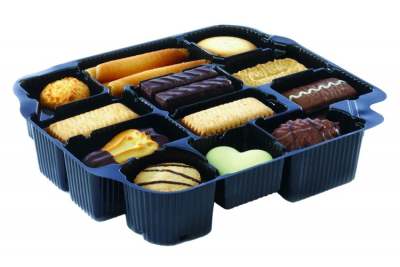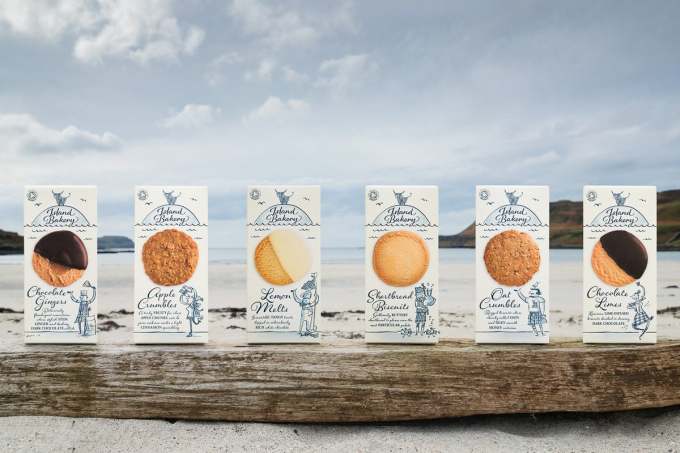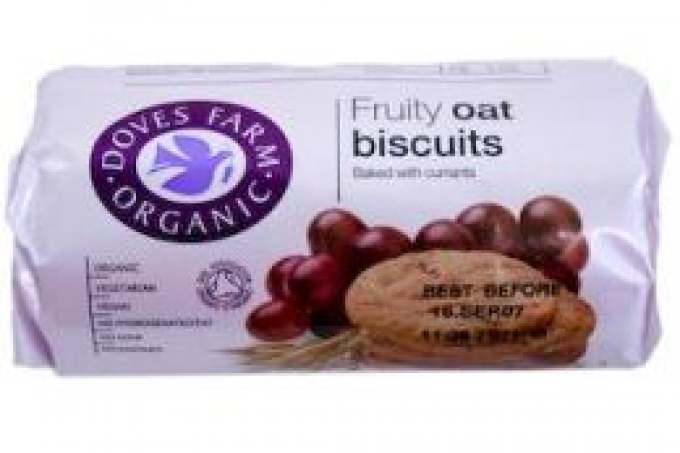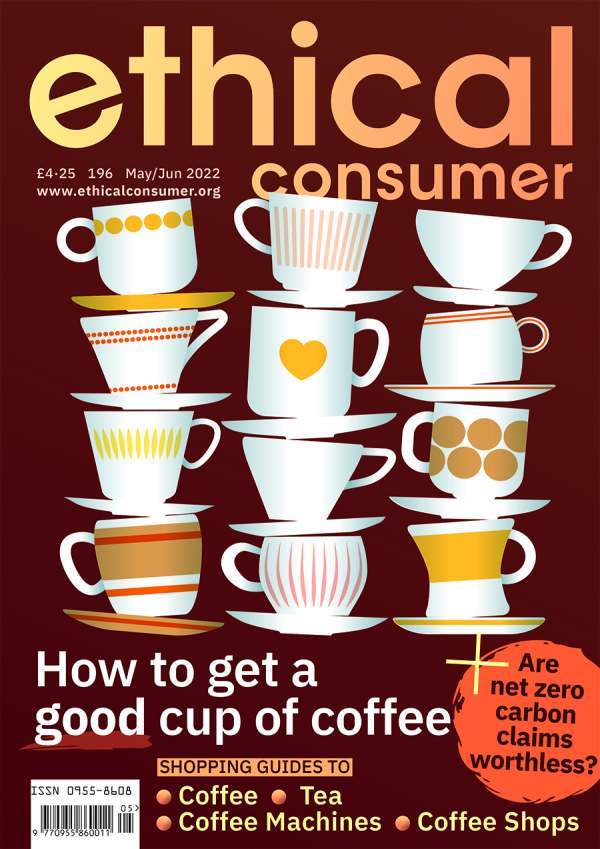Cadbury (Mondelez) – Bournville fingers dark.
Oreo (Mondelez) – All apart from the chocolate-covered ones.
Ritz (Mondelez) – Ritz Original (UK sunflower oil, but US palm oil)
Maryland (Ferrero International) – Maryland, chocolate chip sugar free cookies.
Jammie Dodgers (Ferrero International) – Jammie Dodgers.
Lyons (Ferrero International) – Rich Tea and Digestives.
Fox’s (Ferrero International) – Ginger Crinkle Crunch, Party Rings.
Kallo (Ecotone Group) – Dark chocolate topped rice cakes and all rice, corn, lentil and veggie cakes except cocoa, date and vanilla.
Mrs Crimble’s (Ecotone Group) – Vegan coconut macaroons, Oaty bakes with chocolate, vegan choc macaroons.
Lotus Bakeries – Lotus Biscoff original, Biscoff cream sandwich, Biscoff vanilla sandwich.
Orgran* (Finebrook Pty Limited) – All biscuits.
Asda – Lightly salted cracker bites, melba thins, pink wafers, digestives, cookies & cream, rich tea, bourbon, digestive, fruity flapjack cookies, cream crackers, water biscuits, crisp and savoury cracker range.
Co-op – Breadsticks, bourbon, rich, tea, ginger nuts, digestives (but not honest value digestives), cream crackers, Scottish oat cakes, rosemary crackers, sea salt and black pepper crackers.
Lidl – Rivercote brand: original rye crispbread, wholegrain rye crispbread with sesame, savoury crackers, grissini breadsticks, salted and unsalted rice cakes, multi-seed flatbread thins. Tower Gate brand: oaties, bourbons, fruit shortcake, mini iced rings, ginger nuts, rich tea, digestives, Scottish black pepper oatcakes, rough oatcakes, seeded oatcakes, gluten-free ginger cookies. Sondey brand: speculoos.
Marks & Spencer – Digestives, bourbons, rich tea, ginger snaps, oat crunch, iced party rings, cream crackers.
Morrisons – Snacking crackers, grissini breadsticks, rice cakes, coconut rings, oat nobblies, ginger nuts, fruit shorties, bourbon, Scottish rough oatcakes, poppy and sesame thins, sea salt and black pepper crackers, rosemary crackers, water biscuits, cream crackers.
Sainsbury’s – Salt and pepper crackers, rosemary crackers, grissini breadsticks, corn thins, rice cakes, bourbon, rich tea, Lovett’s Digestives but not Sainsbury’s own, nice, ginger snaps, shortcake, cream crackers, harvest grain crackers, savoury crackers, high bake water biscuits, poppy and sesame seed thins, butter puffs, rough oatcakes.
Tesco – Multigrain crackers, snackers, rye crispbreads, original and sesame breadsticks, lightly salted rice cakes, salt and vinegar rice cakes, bourbons, fruit shortcake, ginger nuts, rich tea, cream crackers, sea salt crackers, salt and pepper crackers, rosemary crackers, sesame and poppy thins, water biscuits, garlic crackers, Scottish rough oatcakes.
Waitrose – Essential wholewheat biscuits, No.1 biscuits for cheese, No.1 fig, plum and cranberry wheat biscuits, No.1 rosemary sourdough crackers, essential bourbons, essential ginger nuts, rich tea, nice, fruit shortcake, shortcake, poppy and sesame seed thins, high bake water biscuits, cream crackers.







